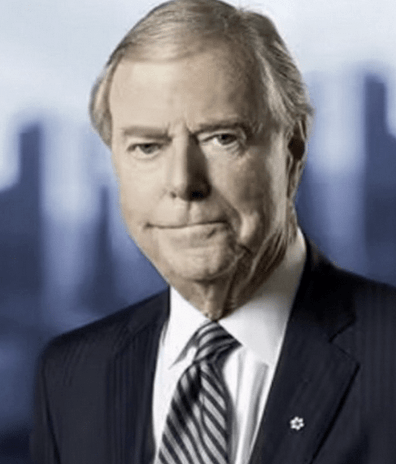The Homestretch: Poilievre and the Ghost of Elections Past

By Don Newman
April 24, 2025
He materializes on the screen like the ghost of elections past.
With the federal election days away, the Conservatives consistently trailing the Liberals in the polls, and leader Pierre Poilievre in danger of losing his own Ottawa riding, Stephen Harper has been enlisted to rally the troops.
The first appearance by the former prime minister was at a large rally in Edmonton where he introduced Poilievre for a crowd of Conservatives. Last week, he re-emerged in a campaign ad, making the same pitch: He knows both Poilievre and Liberal Leader Mark Carney, and he believes Poilievre is better qualified to be prime minister.
Committed Conservatives undoubtedly would like to believe Harper’s assessment of the two men. But incredulity could be forgiven among the non-partisan. Finding that someone who has spent his entire adult life on Parliament Hill as a political aide, Member of Parliament, junior cabinet minister and Leader of the Opposition would make a better prime minister than someone who has been in charge of the central banks of two G-7 countries, a financial executive and a United Nations official would indicate a very partisan reading of the candidates’ CVs.
To say nothing of Carney’s experience steering Canada out of the worst carnage of the 2008 financial cataclysm with a level of competence Harper not only thanked him for, but which prompted the then-prime minister to offer him the job of finance minister. Pierre Poilievre was also in Harper’s cabinet, but it wasn’t as finance minister.
When Harper lost in 2015, he resigned immediately, but not on camera. Instead, a statement was released just before his concession speech, indicating his departure as leader. He omitted that news from the speech, then disappeared into the night.
This contrast in credentials is particularly relevant when, for most of this campaign, the dominant issue has been who can best deal with US President Donald Trump, his punishing tariffs on Canadian auto and other exports to the United States, and his continued musing about making Canada the 51st state of his country. Repeated polls show Canadians believe Carney’s career has better prepared him to deal with the bombastic and erratic President.
Now, as the campaign ends, the Conservatives are sending additional workers into Poilievre’s Ottawa riding to try and pull the election day vote. Polls show Poilievre in a dead heat with his Liberal rival. If the national polls are right and the Conservatives lose, Poilievre’s future as leader will be in question. At the beginning of this year, his party was over 20 points ahead in the polls. Were he to lose his own riding as well he might as well make his resignation speech before the cameras on election night.
When Harper lost in 2015, he resigned immediately, but not on camera. Instead, a statement was released just before his concession speech indicating his departure as leader. He omitted that news from the speech, then disappeared into the night.
Since then, Harper has been low-key in Canada, making few political appearances. He has been more active abroad with right-wing politicians such as Viktor Orban in Hungary and Benjamin Netanyahu in Israel.
But now, you can expect to see Harper commercials this weekend on regular channels and around the Stanley Cup playoffs on the sports channels. Even if Harper can’t drum up new votes for Poilievre, maybe he can convince the committed to at least bother to vote in what seems to be a losing campaign. But if the ghost of election victories past is now their best hope, the Conservatives may have a hard time closing the sale.
Policy Columnist Don Newman is an Officer of the Order of Canada, and a lifetime member and a past president of the Canadian Parliamentary Press Gallery.
